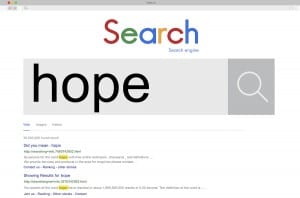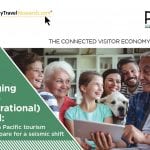One of the great founding narratives of business is that of the millionaire or billionaire who didn’t do any research because they had a great vision. The story is often supported by the Henry Ford quote that if he had asked the customer what they wanted they would have said faster horses. In this article, we will discuss why and how should businesses conduct tourism research.
If anything in our ‘post-truth’ world that story has got even stronger: for some people evidence no longer matters.
And it is true, that there are occasionally businesses that did grow strong and powerful without research. Probably everyone can think of at least one.
It’s the exception that proves the rule
But there is a powerful cognitive illusion that sits at the heart of this. It’s a combination of three powerful biases that behavioural psychologists have identified: availability, optimism, and over-confidence.
The availability bias states that we tend to trust the evidence that is readily available to us. We can see businesses that fit that mold so we assume it applies to all tourism businesses.
Just as we may know someone who lived to a ripe old age despite smoking (in my case my paternal grandmother who smoked unfiltered cigarettes continuously for more than 40 years yet lived to be 93). But this ignores the many much more numerous businesses (and grandmothers) who did die because they didn’t use evidence to make better choices.
age despite smoking (in my case my paternal grandmother who smoked unfiltered cigarettes continuously for more than 40 years yet lived to be 93). But this ignores the many much more numerous businesses (and grandmothers) who did die because they didn’t use evidence to make better choices.
That’s because of those two other biases: optimism bias means that we tend to assume we will be among those businesses or grannies who buck the system. And we often tend to be overconfident of our abilities (ever met someone who admits to being a below-average driver?)
But you don’t have to look too far to find examples of this. In his book, Brand Failures: The Truth about the 100 Biggest Branding Mistakes of All Time
Matt Haig outlines some really famous examples. Having read the book, I calculated that the single most common cause of the disaster was either not doing research or ignoring the research when you did it. Some of those disasters, like the opening period of EuroDisney, cost millions of dollars.
It’s even more important when you’re a small business to spend your money wisely because you have so much less of it – as well as not so much time. And margins in tourism are often wafer thin – especially in the early years of a business.
In contrast, having evidence (which is what tourism research is) enables you to plan more confidently.
Here are some examples of the kinds of business questions that research can help you solve:
- China is one of the fastest-growing outbound markets in the world. But should you try to get some of it? Or are you better off sticking with your current markets? If you don’t understand what Chinese customers want and how they plan to travel, you could waste a lot of time and lose business from your existing markets whilst you pursue them.
- Does my product need updating? What do I change if it does? If you don’t know what your customers like and don’t like about your product then you could waste valuable money on things they don’t want.
- I know social media is becoming more important, but which ones should I focus on? Do I need to get into Snapchat?
- I want to apply for a grant for a new event in my destination. But they need me to provide evidence that it will work.
Seeing through the customer’s eyes is powerful
That’s what Bronwyn White my business partner found when she joined the market research team at Qantas. She found all this amazing data and had an A-ha moment where she wondered how much more successful she would have bee n if that information had reached her when she was a saleswoman for Qantas – and she was already their top saleswoman.
n if that information had reached her when she was a saleswoman for Qantas – and she was already their top saleswoman.
So she created a role to take that message to the broader airline – and it generated step-change improvements in many aspects of Qantas’ service as staff saw themselves through the customer’s eyes.
Similarly, many years ago we did some research to help someone who was thinking of quitting their job and mortgage their house to set up a guided walks company. The research indicated the market wasn’t quite ready for their concept.
So not a stunning business success, but on the other hand, he kept his house and his job – to found the company a few years later when the time was right (and the mortgage paid). That’s the power of research.
If you don’t do it, you’re relying on hope marketing (where you keep doing things and hoping that they work, but don’t know what makes it work if they do, or why not if they don’t). It sounds comforting but actually, it’s exhausting and terrifying. When you conduct tourism research, it gives you peace of mind.
But I’m only a small business or destination, I can’t afford to conduct tourism research
There’s often a perception that it has to cost a lot to do research. But actually, whilst we lack many things in tourism we do actually have access to some low-cost, high-value research.
My advice is to start small, use existing resources, and use the savings and gains you made to grow your research activity (and of course your business).
Want to find out more? You can:
- Read the piece I’ve written for our friends at Tourism e-school on how research can help tourism businesses prosper
- We have posted a short video about why you should consider tourism market research for your business, destination, or association.
- Or if you are a member of the MyTravelResearch.com Insights and Trends Hub you can go in-depth in our How to training modules. You can sign up and have all research on around 70 topics prepared for you.
You may find – as Bronwyn did – that research is addictive as well as important. So challenge that overconfidence bias and help your organisation grow.
Do you want to hear more from us?
Want to be kept up to date with the latest travel and tourism insights? Join Our Mailing List. Every 2 weeks, we send the latest practical insight for you to apply to your business and destination marketing.






Conducting tourism research is an indispensable strategic move for businesses operating in the tourism industry.
We would humbly agree… thanks for the support for our vision and mission